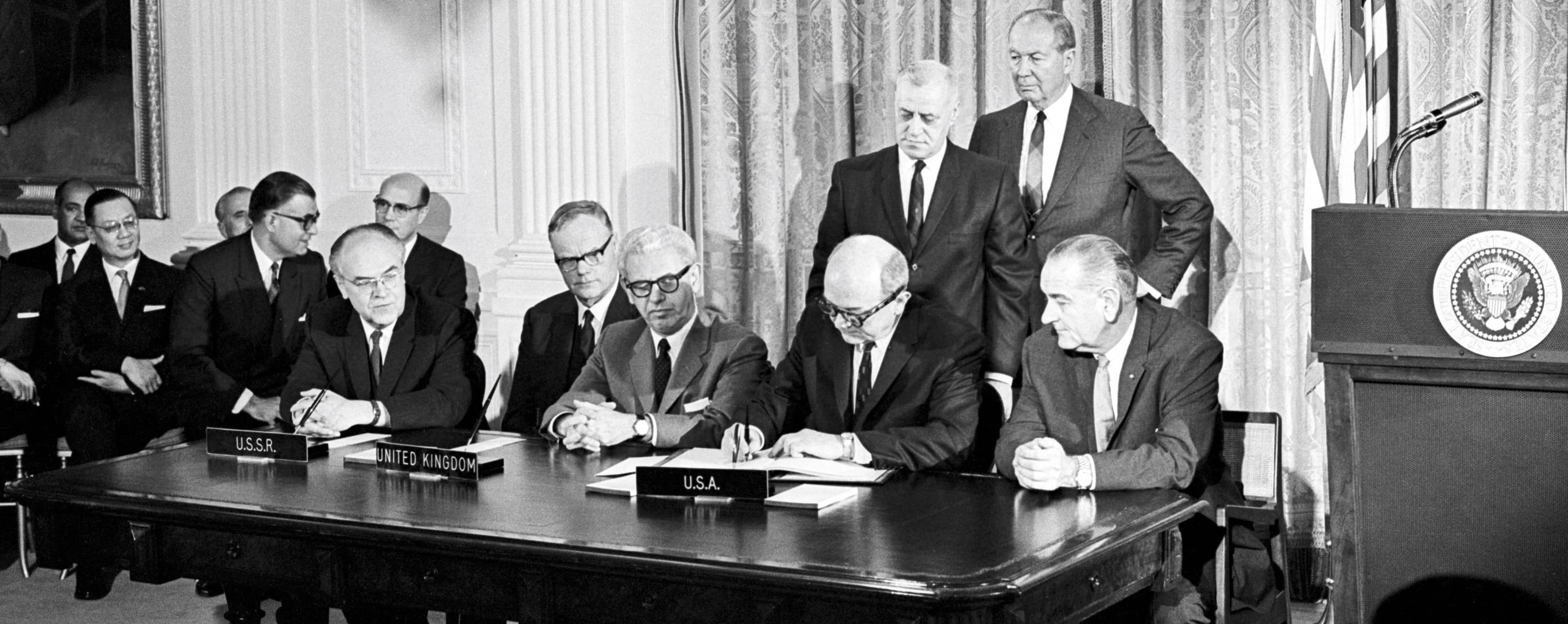
Did you know that outer space has its own set of laws and policies? Space law and policy govern the activities and behavior of countries, organizations, and individuals in space exploration and utilization. It’s a fascinating field that deals with various legal and regulatory issues in the realm beyond our planet.
In this article, we will delve into the enigmatic world of space law and policy and explore 19 intriguing facts that shed light on this unique area of study. From the origins of space law to the rights and responsibilities of nations in outer space, we will unravel the complexities of this field and how they shape our understanding and exploration of the cosmos.
So get ready to blast off into the unknown and discover fascinating insights into the legal and policy frameworks that govern our activities in space!
Key Takeaways:
- Space law ensures that outer space is used peacefully and responsibly, just like how we follow rules on Earth to keep things fair and safe.
- As space exploration grows, laws are evolving to address new challenges and opportunities, making sure that everyone can benefit from space activities.
The Outer Space Treaty of 1967 is the cornerstone of space law.
Enacted by the United Nations, this treaty provides a legal framework for the exploration and use of outer space. It emphasizes peaceful purposes, prohibits the placement of weapons of mass destruction, and promotes international cooperation.
Space debris is a significant concern.
With thousands of defunct satellites, spent rocket stages, and other debris in Earth’s orbit, the accumulation of space junk poses risks to current and future space missions. Efforts are underway to develop guidelines and regulations to mitigate this problem.
The right to explore and utilize outer space is a fundamental principle.
According to the Outer Space Treaty, all nations have the freedom to explore and use outer space for peaceful purposes. This includes scientific research, satellite communications, and even resource extraction.
Space tourism is on the rise.
With the emergence of private space companies like SpaceX and Blue Origin, space tourism is becoming a reality. As this industry grows, regulatory frameworks are being developed to ensure the safety of passengers and the sustainability of space activities.
The Moon Agreement of 1979 sparked debates.
While the Outer Space Treaty prohibits the ownership of celestial bodies, the Moon Agreement attempts to establish a framework for resource utilization on the Moon and other celestial bodies. However, its ratification has been limited, and controversies surround its provisions.
Commercial satellite launches require approvals.
Spacefaring nations regulate commercial satellite launches through licensing procedures. These regulations ensure compliance with safety standards, frequency spectrum usage, and national security considerations.
Space law is evolving to adapt to new challenges.
Rapid advancements in technology and increased space activities have propelled the need for updated space regulations and laws. Governments and organizations are continuously reassessing and developing legal frameworks to address emerging issues.
The International Telecommunication Union coordinates radiofrequency spectrum allocation.
As an agency of the United Nations, the ITU plays a crucial role in allocating and coordinating the use of radiofrequency spectrum for satellite communications, broadcasting, and other space-related activities.
Liability is a key aspect of space law.
Space activities involve inherent risks, and liability provisions ensure that parties are held responsible for damages caused by their space objects. International agreements establish liability regimes to provide compensation for potential harm.
The United Nations Office for Outer Space Affairs (UNOOSA) promotes international cooperation.
UNOOSA serves as a forum for member states to collaborate on space-related matters, including space law and policy. It facilitates the exchange of information, capacity-building initiatives, and the promotion of peaceful uses of outer space.
The United States is a leading force in space law development.
As a pioneer in space exploration, the United States has played a significant role in shaping space law and policy. Its legislation, court decisions, and international agreements have influenced the global space legal framework.
The Commercial Space Launch Competitiveness Act allows U.S. citizens to own asteroid resources.
Passed in 2015, this act grants U.S. citizens the right to own and sell resources obtained from asteroids. It encourages commercial space mining activities while aiming to avoid conflicts with international space law.
The concept of “space tourism” raises legal and ethical questions.
As private companies offer space travel experiences to individuals, concerns arise regarding the safety of tourists, liability issues, and the impact on space environments. These challenges necessitate careful legal consideration.
Satellites play a vital role in global communication and observation.
Satellites enable telecommunications, weather forecasting, Earth observation, and navigation systems. Regulations governing satellite operations are essential to ensure effective and responsible use of these technologies.
The Space Resource Exploration and Utilization Act fosters commercial asteroid mining in the United States.
This act, passed in 2015, facilitates the development of technologies and practices for extracting resources from asteroids. It encourages private investment in space resource exploration and utilization.
The United Nations General Assembly established the Committee on the Peaceful Uses of Outer Space (COPUOS).
COPUOS acts as a platform for member states to discuss and coordinate space-related policies. It oversees the implementation of international space law and promotes peaceful collaboration in the exploration and use of outer space.
Space law covers intellectual property rights.
Inventions originating from space exploration and satellite technology are subject to intellectual property laws. Patents, copyrights, and trademarks protect innovations in the field of space science and technology.
The regulatory landscape for space activities differs across nations.
While international agreements form the basis for space law, individual countries have the autonomy to establish their own regulations governing space activities. This can lead to varying levels of legal frameworks and policies.
The concept of “space law” can encompass a wide range of legal disciplines.
Space law intersects various areas of law, including international law, commercial law, intellectual property law, environmental law, and more. It requires a multidisciplinary approach to address the complex legal issues surrounding outer space activities.
Conclusion
Space law and policy are fascinating and enigmatic fields that play a crucial role in the exploration and utilization of outer space. As humans venture further into the cosmos, it is essential to have a legal framework to govern our activities and ensure peaceful and responsible coexistence in space.
From the intricacies of celestial property rights to the challenges of regulating space tourism and the ever-evolving landscape of international cooperation, space law and policy are dynamic and constantly evolving fields. They require a delicate balance between promoting innovation and exploration while safeguarding the interests of all nations and ensuring the sustainability of outer space activities.
As we continue to explore the cosmos and push the boundaries of human knowledge, space law and policy will play an increasingly important role in shaping the future of our interaction with the vast expanses of the universe.
FAQs
1. What is space law?
Space law refers to the body of legal principles and regulations that govern human activities in outer space. It covers various aspects such as satellite communication, space exploration, celestial resource utilization, and international cooperation in space missions.
2. Why is space law important?
Space law is essential to ensure the peaceful exploration and utilization of outer space. It provides a legal framework to govern activities in space, protect the rights of space-faring nations and commercial entities, and promote international collaboration. It also addresses potential issues such as space debris, launch responsibility, and intellectual property rights.
3. What are the challenges in space law and policy?
Challenges in space law and policy include defining property rights in space, regulating space tourism and commercial space activities, dealing with space debris management, resolving international disputes, and maintaining a balance between innovation and ensuring the safety and sustainability of space activities.
4. Who enforces space law?
Space law is enforced by individual countries and international organizations like the United Nations Office for Outer Space Affairs (UNOOSA), International Telecommunication Union (ITU), and International Astronautical Federation (IAF). Each nation is responsible for enforcing space laws within its jurisdiction and complying with international treaties and agreements.
5. How can someone pursue a career in space law?
To pursue a career in space law, individuals can study law or international relations focusing on space law or policy. They can work for government agencies, space organizations, law firms, or academic institutions specializing in space law. It is beneficial to stay updated with the latest developments in space technology and international space treaties.
Delving into the enigmatic realm of space law and policy is a fascinating journey. From the groundbreaking Outer Space Treaty's role in shaping space law to the challenges posed by space debris, these 19 facts offer a glimpse into the complex legal frameworks governing our cosmic endeavors. As you ponder the implications of space tourism and the debates surrounding the Moon Agreement, consider exploring more intriguing aspects of this field. Uncover the mysteries of international space agreements and the role of the United Nations in promoting peaceful space exploration.
Was this page helpful?
Our commitment to delivering trustworthy and engaging content is at the heart of what we do. Each fact on our site is contributed by real users like you, bringing a wealth of diverse insights and information. To ensure the highest standards of accuracy and reliability, our dedicated editors meticulously review each submission. This process guarantees that the facts we share are not only fascinating but also credible. Trust in our commitment to quality and authenticity as you explore and learn with us.


